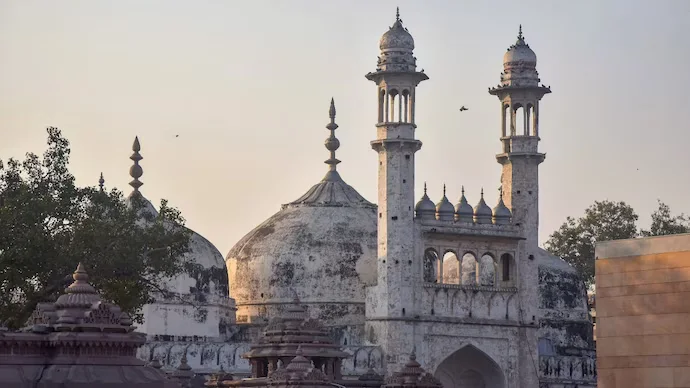No relief to Muslim side as High Court says puja inside Gyanvapi complex to continue
The Allahabad High Court refused to give relief to the Anjuman Intezamia Masjid Committee, which had filed a petition, seeking a pause on puja being performed in the southern cellar of the Gyanvapi mosque complex in Varanasi.

The Allahabad High Court on Friday refused to give relief to the Anjuman Intezamia Masjid Committee, which had filed a petition against an order that permitted Hindu devotees to worship inside the sealed basement of the Gyanvapi mosque complex in Varanasi.
A single bench of Justice Rohit Ranjan Aggarwal ordered the Advocate General to maintain law and order within and outside the Gyanvapi mosque premises. The next hearing of the case will be on February 6.
Earlier, the mosque committee had approached the Supreme Court challenging a district judge’s order that allowed puja to be conducted in the southern cellar of Gyanvapi mosque. However, the mosque committee was asked to approach the Allahabad High Court instead.
During the hearing, senior advocates SFA Naqvi and Puneet Gupta, representing the mosque committee, told the High Court that the Hindu side was demanding one of the four cellars in which Vyas Ka Tekhana (cellar) is located in the basement for worship. The Muslim side said an application filed by the Hindu side was allowed on January 17 when a District Magistrate was appointed as a “receiver” of that portion of the mosque.
Advocate Vishnu Shankar Jain, representing the Hindu side, opposed the mosque committee’s petition and said it had not challenged the January 17 order and not the order on January 31 which permitted puja to be conducted in the sealed basement of the Gyanvapi mosque.
Refusing to give any relief, the High Court ruled that the mosque committee did not challenge the January 17 order and did not pause the district court’s decision to allow puja within the Gyanvapi mosque premises.
The High Court’s decision came days after four women petitioners moved the Supreme Court, seeking excavation and a survey of the sealed section of the mosque. The plea was made in the top court after the Archaeological Survey of India (ASI) report, as per the Hindu side, revealed that a large Hindu temple existed before the construction of the Gyanvapi mosque.
Several Hindu activists challenged that a temple existed earlier at the disputed Gyanvapi mosque site and was demolished in the 17th century on the orders of Mughal emperor Aurangzeb, a claim rejected by the Muslim side.




